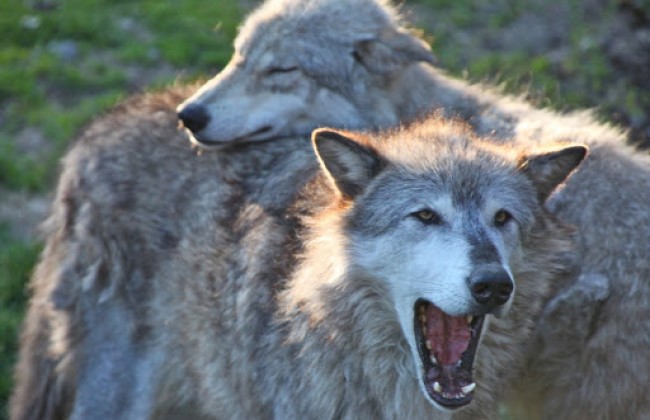Adventure
Gray Wolves No Longer Endangered, Says USFWS

Turns out that scientifically managing wildlife together with sportsmen works–who knew? (You did.)
Last Thursday, Department of the Interior Secretary David Bernhardt and U.S. Fish and Wildlife Service (FWS) Director Aurelia Skipwith announced that the American gray wolf no longer qualifies as an endangered species…and although it’s great news, it’s not surprising. Scientifically managing wildlife populations–complete with crucial data and selective hunting from sportsmen–works. Now that gray wolves are back from the brink, they will no longer be under federal management authority. That is going back to the individual states, to manage as they see fit within their own ecosystems.
Wolves are a wildlife restoration success story, akin to the recovery and delisting of bald eagles, peregrine falcons, and numerous other species. The ultimate goal of the Endangered Species Act is to stabilize populations so that management can move back to the states. Now that wolves are not considered endangered species, there is no reason to delay state-level management…to include hunting seasons. The Boone and Crockett Club, which celebrates conservation and fair-chase hunting, alooks forward to the future collaborative management of this species.
“As a leader in the first successful delisting of the gray wolf 10 years ago, we welcome this decision and hope it brings closure and celebration to the restoration of the wolf in the lower 48 states,” commented Boone and Crockett Club President Tim Brady in response to the announcement. “The goal of the Endangered Species Act is to recover imperiled species so they no longer require the protections offered by the Act, and the gray wolf is a good example of how a species can be recovered.”
In 1995 and 1996, 66 wolves from southwestern Canada were reintroduced into Yellowstone National Park and to central Idaho and by 2002, the states of Idaho, Montana, and Wyoming had exceeded their recovery goals. In addition, existing populations in the western Great Lakes states had met their population goals by the early 2000’s and within a decade the populations were two to three times their recovery goals.
The Boone and Crockett Club has worked to ensure that recovered wolf populations could be moved off the endangered species list in order to be managed by state fish and wildlife agencies. However, legal challenges to FWS delisting decisions had put wolf management in a constant state of limbo. The Club worked closely with Idaho Representative Mike Simpson and Montana Senator Jon Tester on legislation to ensure that wolves in those two states would be delisted and to prohibit future litigation.
After it was enacted in 2011, Idaho and Montana assumed full management authority and proved that their state management plan could maintain stable wolf populations. Wolves in the contiguous U.S. are now estimated at 6,000 individuals and the Club has continued to work with states and the FWS to move to delist gray wolves throughout their range in the lower 48 states.
“Wolves are fully recovered and are naturally expanding and reestablishing well beyond their identified recovery area,” Brady concluded. “Continued lawsuits and delaying of state management of this recovered species is unnecessary, as are proposals to reintroduce wolves in states like Colorado. It is time to celebrate wildlife restoration when we have been successful; it is time to close the book on gray wolves as a federal endangered species.”
-

 Adventure2 months ago
Adventure2 months agoElk Calling Tips: Essential Guide for First-Time Hunters
-

 Accessories2 months ago
Accessories2 months agoBackcountry Trails 2025: Top 10 Hacks & Gear
-

 Adventure1 month ago
Adventure1 month agoE-Bike Trails During Fall 2025 in the US | Autumn Routes 🚲🍁
-

 Accessories1 month ago
Accessories1 month agoKilian Jornet States of Elevation Midway Update
-

 Uncategorized3 weeks ago
Uncategorized3 weeks agoBest Corn Mazes 2025: Top 10 in the US for Fall Fun






